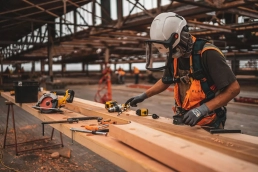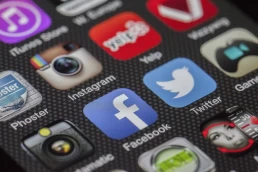The Philippines’ hospitality industry is currently weathering a blow from COVID-19. As of October 2019, tourism in the country is a Php 2.2-trillion-strong industry and generates more than 12% of the GDP. According to the Department of Tourism (DOT) Secretary Bernadette Romulo-Puyat, the industry also employs about 5.4 million people under various sectors such as accommodations and transportation.
By May 2020, the numbers have changed drastically. Tourist arrivals in the Philippines have declined by more than 50%, from 2.8 million to just above 1 million. Secretary Puyat also said that the revenue from tourist arrivals have decreased by 55% from January to April of this year. Worldwide, tourist travels have dropped by nearly 60%.
How the Biggest Luxury Resorts and Casinos Are Faring
The same fate has also struck the country’s biggest luxury resorts. The most prominent among them include multi-billion-dollar resorts City Of Dreams, Solaire, and Okada in Paranaque and Resorts World in Pasay. For perspective, luxury resort and casino Okada, which opened only last December 2016, announced in May 2020 that they will be laying off more than 1,000 of its staff. And with these establishments also housing casinos as part of their entertainment options, this has undoubtedly also affected the local casino industry.
If you want to learn more about the status of the casino industry in the Philippines. It reviews the top casino sites for Filipinos and monitors the changes in the local laws. The bottom line, however, is that resort-casinos are currently experiencing losses. They are also trying to capitalize on the possibilities of online gaming.
Indeed, just as various industries and individuals have turned to online work arrangement and income opportunities, the casino industry has also turned to digital set-ups. The outlook is hopeful; in the third quarter of 2019, e-gaming parlors and other online gaming outfits generated about US$ 13 million in gross gaming revenue or GGR. This is a 13% increase from the same period in 2018.
Meanwhile, another form of legal gambling in the country is set to reopen. The Philippine Charity Sweepstakes Office (PCSO) resumed lotto games last August 4, which is certainly good news for lotto outlet operators.
The New Normal for the Hospitality Industry
There are plenty of viable business opportunities during the pandemic, most of which are predominantly online. While not completely possible for the hospitality industries, there are certain aspects that can be more smoothly transitioned to digital platforms. For example, museums can offer virtual tours to minimize physical contact. It can even be an avenue for expansion since local museums can easily attract customers from out of town or even out of the country.
The DOT has also issued tourism standards, which will be in place until a vaccine for COVID-19 has been developed. The protocols, which include the following, are based on information provided by the Department of Health and the World Health Organization:
- Maximum of double occupancy for hotels.
- 50% occupancy in terms of dining operations.
- Regular sanitation/disinfection of hotels, resorts, tourist transports, meeting and exhibit venues, spas, and similar tourism-related establishments.
- Proper PPE or personal protective equipment and sanitation/disinfection devices for tourism workers, provided by the establishments.
- No buffets are allowed in hotels and restaurants.
- Strict capacity limits for hotels, restaurants, parks, meetings and conventions, transport services, and the like.
- Contactless check-ins for hotels.
In addition to these above protocols, the DOT is also set to develop online systems so that they can continue to conduct tourism-related transactions such as accreditations and training. Moreover, there will also be regular inspections of all tourism-related establishments.
The Future of Tourism Post-COVID
According to DOT Undersecretary for Tourism Regulation, Coordination, and Resource Generation Arturo P. Boncato Jr, there are already about 1,000 hotels that have resumed operations as of May 2020. They account for more than 60,000 rooms, although most of these are allocated for OFWs and employees in essential industries. Boncato also said that, under general community quarantine, the hotel industry is also allowed to fully reopen following the guidelines mentioned above.
Meanwhile, last April 2020, Horwath HTL Singapore and Tajara Hospitality published a sentiment survey among 49 hotels and 23 resorts in the Philippines. Horwath HTL is the world’s largest hospitality consulting brand, while Tajara is a local hospitality consulting and development company.
The respondents of the survey are highly optimistic regarding domestic corporate demand. They are also confident that domestic leisure travel will recover positively, even as they noted that foreign leisure travel might not experience the same improvements. In the same vein, the respondents felt that domestic demand for MICE or meetings, incentives, conventions, exhibits will also have a healthy recovery.
When it comes to flights, the Air Carriers Association of the Philippines has conducted studies on what kinds of measures to adopt in the new normal. Some of the suggestions include not making the middle seats unavailable to passengers and imposing a 70% capacity on all planes. PPEs are also required for the flight crew, while passengers may be required to wear both masks and face shields.
There are a lot of factors that need to be fulfilled before the hospitality industry can resume full operations and start on the road to recovery. These include the reduction of local transmission of the virus, as well as the development and timely acquisition of a vaccine. Until then, major players in the hospitality industry can only wait with bated breath.
Glen Dimaandal is the founder and CEO of the GDI SEO Company, a search marketing agency based in the Philippines. He is a former SEO Manager at Fortune 500 corporations and is now a full-time entrepreneur.





